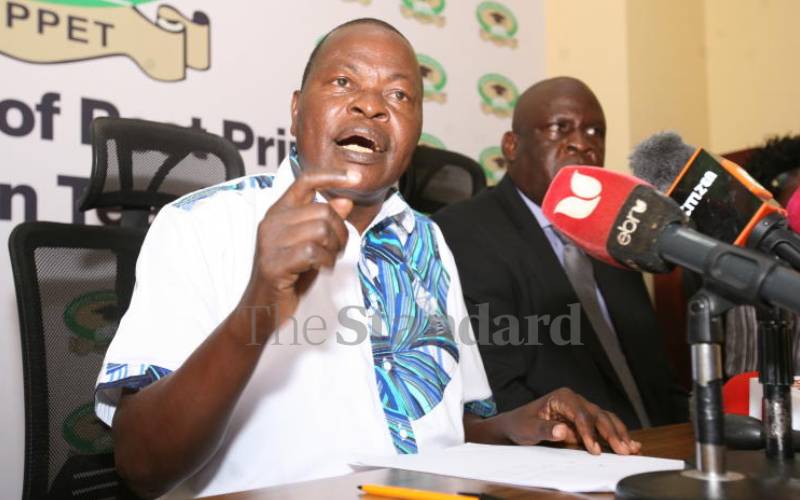×
The Standard e-Paper
Join Thousands Daily

KUPPET secretary-general Akelo Misori (left) with Omboko Milemba during a presser, February 23, 2022. [Denish Ochieng, Standard]
Just when the education sector is beginning to regain its composure after the Covid-19 chaos, teachers are threatening to throw the cat among the pigeons with a strike threat that could upend the gains made so far.